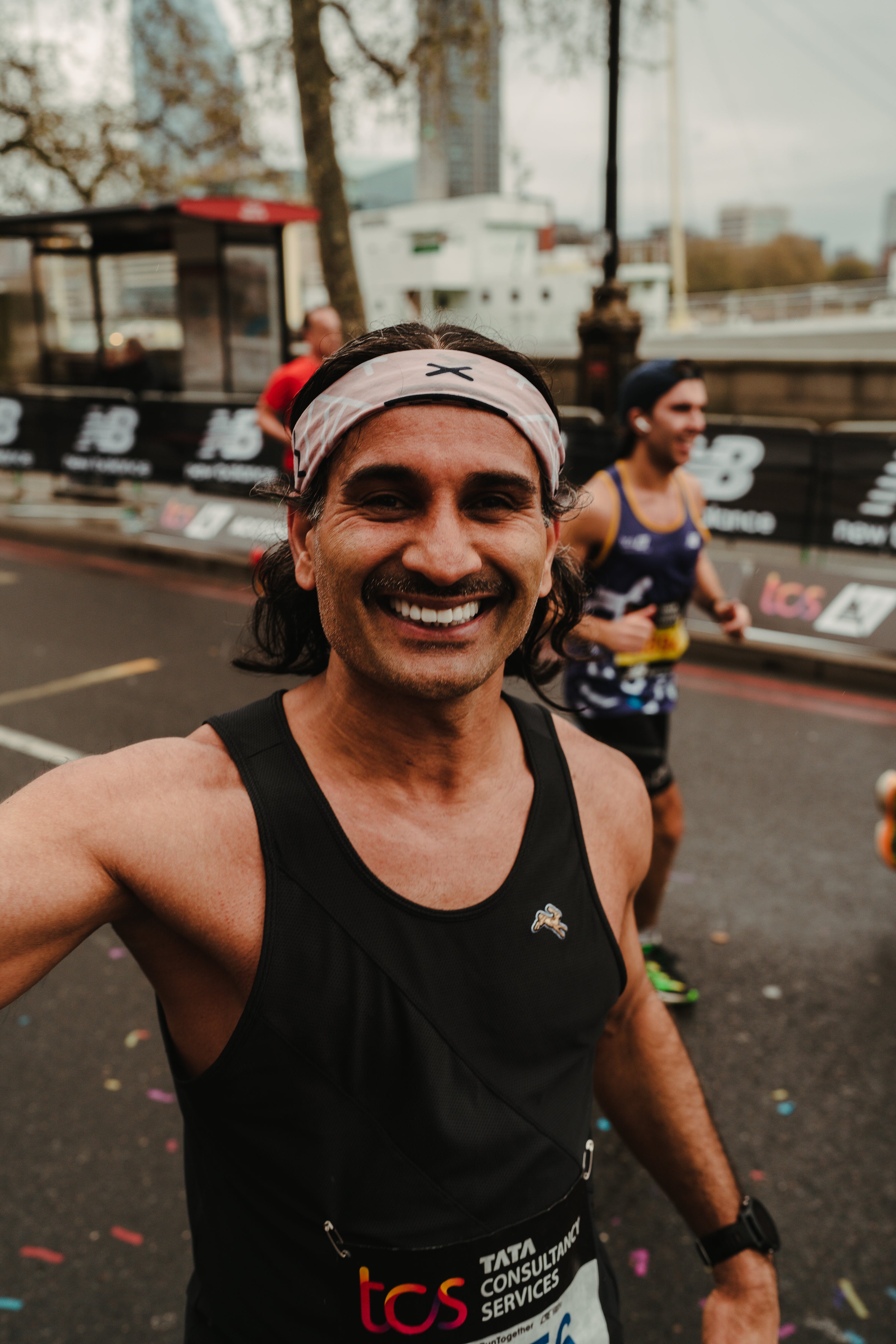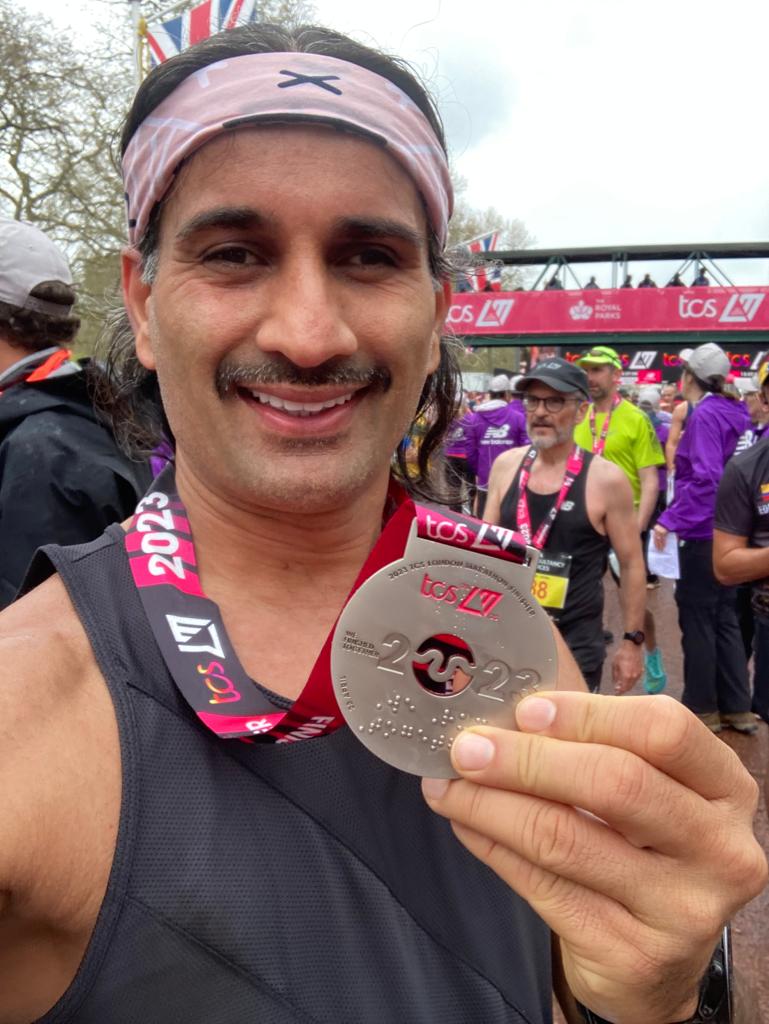
How did you find the London Marathon?
I loved it! It was a tough marathon as it was rainy and hilly but I enjoyed it. It’s not supposed to be easy. It’s a test. It’s a good test of strength, stamina, and mindset. It’s a reminder of how far I’ve come and of everything I’ve overcome in the past.
How do you feel today, mentally and physically?
My legs were smashed, absolutely broken. It was really difficult to walk downstairs. But I’ve got a massage gun and I’ve done some yoga and I’m feeling pretty good now. Mentally, I’m still riding that high. I’m still digesting and reflecting on it. I went out there to run a marathon to raise awareness for mental health and normalise the conversation but I didn’t realise how much I needed it for myself. With London being my home and growing up as a kid going down to Lower Thames Street (to watch the marathon) and watching all these big runners go past me when I was eight or nine years old, not knowing that one day I’d be doing it, just brought everything back for me. Parts of my life flashed before my eyes when I was running: my running journey, my mental health journey. All of it.

Did you have any setbacks in the build up?
About 10 days prior to the race I developed this back strain and I couldn’t even bend down to take my shoe off. I was worried I wasn’t even going to be able to run the marathon and enjoy it. I had some doubts because of that but after three massages I was almost pain-free.
How did you manage those feelings of doubt?
There’s this book that I read called Courage is Calling by Ryan Holiday and I read some of the anecdotal stories about Spartans and that helped remind me to dig deep and be brave and have courage in these circumstances. Thinking optimistically helped me to recover.
What challenged you most physically?
I forgot how hilly the London Marathon is. That took its toll on my legs and started to slow me down. So I decided to enjoy the marathon as that was the most important thing. I just took it all in: the crowd, the atmosphere. They carry you. I mean, your legs carry you but the crowds push you along.
Who or what were you thinking about as you ran?
I thought about how far I’ve come and how fortunate I was to have this opportunity. I turned 50 two weeks ago and I was just reflecting on that and the people I’d connected with. Each time someone called my name it reminded me that I’m part of a running community and the work that I’ve done and the people I’ve engaged with to help with mental health.
How did you manage your hydration?
I kept picking up a bottle every time I saw a Buxton stand. It helped with my concentration and kept me on track. Hydration is key — your body needs it.

Have you learnt any life lessons you can apply elsewhere from this challenge?
Be kind to people because you don’t know what they’re going through, and build good relationships because you don’t know when they might turn up to support you without you realising it.
How will you look after yourself this week?
Resting, sleeping and just celebrating really. I’ll go for a run but there’s no rush. Just to shake the legs out a little bit and get the blood circulating a bit more. And in terms of nutrition, I’m just eating whatever I want because I deserve it!
Could you sum up the experience?
I was doing all this work for mental health and at times it felt like it wasn’t being seen or making any difference. But then I was given this platform and now it feels like I’ve made a massive impact. If you have an opportunity to make a difference, take it. You never know what impact you’ll have on someone’s life. One person can’t help everyone but everyone can help someone.
Mind says: Training for and running a marathon can take its toll on body and mind. It’s best to seek advice on injuries and rehabilitation from a professional if you’re concerned. Sometimes the best decision is to defer a place for another year – speak to the organisers or charity you are running for to explore the options available to you. For advice on maintaining a healthy relationship with physical activity visit mind.org.uk/getactive
Find out more about the Sweat and Tears campaign and how it aims to promote better physical and mental well-being across the nation, through exercise and hydration.







